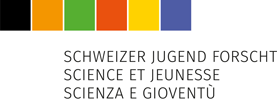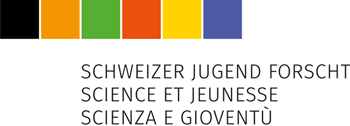While the Swiss Tech Convention Center sure had its fair share of interesting guests, this week, it’s definitely in for a special treat. For the 12th time already, the International Swiss Talent Forum (ISTF) invites a multinational group of bright, young minds to find solutions to our society’s current, global concerns. This year, our 61 participants are tasked with tackling the topic of circular economy – a challenge that’s as international, diverse, and interdisciplinary as they are themselves. Unlike the more linear economy that currently dominates the world, where raw materials are sourced, goods produced, subsequently used, and finally discarded, circular models suggest the refurbishment and reuse of what the contemporary system labels as waste, aiming to lessen the environmental impact of our excessive consumption.
“the linear economy focuses on waste management […], while a circular economy invites to think of resource management”
As put brilliantly by Felix Stähli, member of the executive committee of Circular Economy Switzerland, “the linear economy focuses on waste management […], while a circular economy invites to think of resource management” and it’s exactly this latter approach, the forum entices its participants to take. Over the course of five days, their creative brains will brood over how legislation and motivation needs to change and in which ways existing procedures could be altered for the circular economic model to eventually succeed.
From a Train of Thought to a Package in the Mail
While the ISTF itself remains more in theoretic realms for now, there are indeed people who have decided to take up this challenge in real life. One leading example thereof would be one of this year’s challengers, Mégane Schafhirt. She is one of four co-founders of the Swiss-based brand ZipBack – a company striving for more sustainable packing solutions to minimize the waste our beloved online shopping sprees produce. To do so, their business collaborates with IWA Kep, a Swiss NGO, which employs workers in Cambodia who collect and refurbish bags that once contained cement but now would be discarded. Once the sturdy material is crafted into the desired shipping-bag shape, the resulting product is sent to ZipBack and then distributed to participating retail partners. Once the end-consumer received their package, the ZipBack can be folded into a letter-sized format thanks to the attached pouch and thrown into the Swiss Post’s official mailboxes, from where they will be collected and returned to the company – a process that can be repeated over 100 times.
What is remarkable about this project is, however, not only the brilliant solution they provide to reduce waste but also their active efforts to promote equality and inclusivity – topics that are both closely interlinked with the success of the circular economy. “A lot of people still think that sustainability is only about the environment”, Schafhirt states. However, she herself as well as her team quickly realized that the progress of one topic is heavily reliant on the success of the other, which is why they chose to partner with IWA Kep, which specifically support disadvantaged women in Cambodia by providing them with stable employment arrangements.

ZipBack’s creative solution to the packaging waste problem
While of course still relatively novel, the origin of this ZipBack project idea actually lies a few years in the past already. As Mégane Schafhirt and three of her now colleagues were doing their Master’s degrees in business administration with a focus on entrepreneurship and innovation, they were tasked to map out a start-up that complies with the SDG goals as part of a class. A fellow student, and later co-founder, Julie Gaudin, was thinking of developing a business model for a sustainable sports clothing brand for this project but lacked a more resourceful packaging alternative – and in that moment the idea for ZipBack was born. While their concept was indeed received with a lot of enthusiasm, they nevertheless ran into a few obstacles during their journey. As Mégane recalls, the initial difficulty was to find collaboration partners. While it was comparably easy to get in touch with smaller businesses and their leaders, the structural changes needed for this project to succeed were often too financially intensive for retailers of that size. Bigger companies, on the other hand, those with more sufficient funds, were, however, more difficult to collaborate with, as it was hard to reach the highly influential people of the hierarchy. Not to mention the effort it sometimes takes to convince such rather profit-oriented enterprises.
One Problem for a Small Business, a Huge Problem for Mankind
The challenges the ZipBack team faced are, however, not exclusive to them but indeed indicative of the factors that currently hinder the more global implementation of circular economic models in general. Of course, there’s an array of challenges such shift would bring. However, one of the main concerns remains to be the cost-intensive nature of the necessary alteration of manufacturing processes and related changes in infrastructure. Such uneconomical interventions are usually only of little interest for profit-oriented businesses with short term growth goals. One way in which ZipBack tries to mitigate this problem, is by offering to shift the responsibility to the end-consumer. Instead of causing additional cost for the companies, customers of the partnered retailers have the choice between the lower priced, conventional package and the environmentally friendlier ZipBack for a surcharge of 2 CHF during check out. While solutions like this indeed enable and incentivise more businesses to participate in the project, a shift in mindset and habits on both sides is still required for the circular model to succeed – an aspect that often turns into a challenge, especially with older generations, who like to stick to what’s known. “They think it’s the best and only way to live”, Schafhirt suggests. That’s why she especially has hope for younger generations to drive this necessary shift forward as “for [them], it’s easier to change”.
Luckily, the ISTF has plenty of youthful and creative minds who hopefully find ways to progress in our society’s journey to a more sustainable, resourceful and mindful economic future. And in which crazy ways this might happen, is for us to find out at the forum’s final event, which is already fast approaching.



